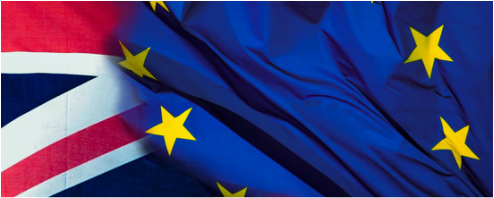Back in June 2016, the United Kingdom voted to leave the EU. There’s no disputing the result: the Leave campaign won fair and square, and the result was beyond contest. However, the result led to four key misconceptions that no one seems to have the courage to point out.
1. The democratic will of the British people is to leave the EU.
Wrong. Democracy is rule by and for all of the people, not just a majority – and a narrow one in this case: 48% of the people clearly voted to remain. The minority has a right to be heard, and it should matter whether the margin of victory was 51%-49% or 90%-10%.
2. The result of the referendum is binding.
Wrong. Quite apart from the fact that this one is specifically ‘advisory’, no referendum set up by Parliament can ever be truly binding. Parliament can give, and therefore it can take away. Had the referendum been binding, then it would have been impossible to undo the 1975 one that ratified our original entry.
3. Brexit means Brexit.
That’s wrong, too, but for a different reason: nobody can agree what Brexit means. So if it means we leave the EU in name but retain all of the features of membership, that could mean Brexit. Brexit means Brexit is meaningless.
4. Those who oppose Brexit are trying to undo the result of the referendum by having a rerun.
Wrong. Attractive as it might be to Remainers, that wouldn’t be democratic either, as 52% were so unhappy with the status quo that they wanted to leave. Something clearly has to change, and the vote is undeniably approval in principle for starting to negotiate Brexit. But the final deal needs to be ratified by the public to have legitimacy. People need to see what is being offered in place of membership of the EU, then vote on the entire package. That’s what any other debating body would do – Parliament included, in the form of a Third Reading. Brexit needs a second referendum eventually. Those who argue otherwise are simply afraid of losing.
Come on everyone – you know it's true. Just admit it.
1. The democratic will of the British people is to leave the EU.
Wrong. Democracy is rule by and for all of the people, not just a majority – and a narrow one in this case: 48% of the people clearly voted to remain. The minority has a right to be heard, and it should matter whether the margin of victory was 51%-49% or 90%-10%.
2. The result of the referendum is binding.
Wrong. Quite apart from the fact that this one is specifically ‘advisory’, no referendum set up by Parliament can ever be truly binding. Parliament can give, and therefore it can take away. Had the referendum been binding, then it would have been impossible to undo the 1975 one that ratified our original entry.
3. Brexit means Brexit.
That’s wrong, too, but for a different reason: nobody can agree what Brexit means. So if it means we leave the EU in name but retain all of the features of membership, that could mean Brexit. Brexit means Brexit is meaningless.
4. Those who oppose Brexit are trying to undo the result of the referendum by having a rerun.
Wrong. Attractive as it might be to Remainers, that wouldn’t be democratic either, as 52% were so unhappy with the status quo that they wanted to leave. Something clearly has to change, and the vote is undeniably approval in principle for starting to negotiate Brexit. But the final deal needs to be ratified by the public to have legitimacy. People need to see what is being offered in place of membership of the EU, then vote on the entire package. That’s what any other debating body would do – Parliament included, in the form of a Third Reading. Brexit needs a second referendum eventually. Those who argue otherwise are simply afraid of losing.
Come on everyone – you know it's true. Just admit it.

